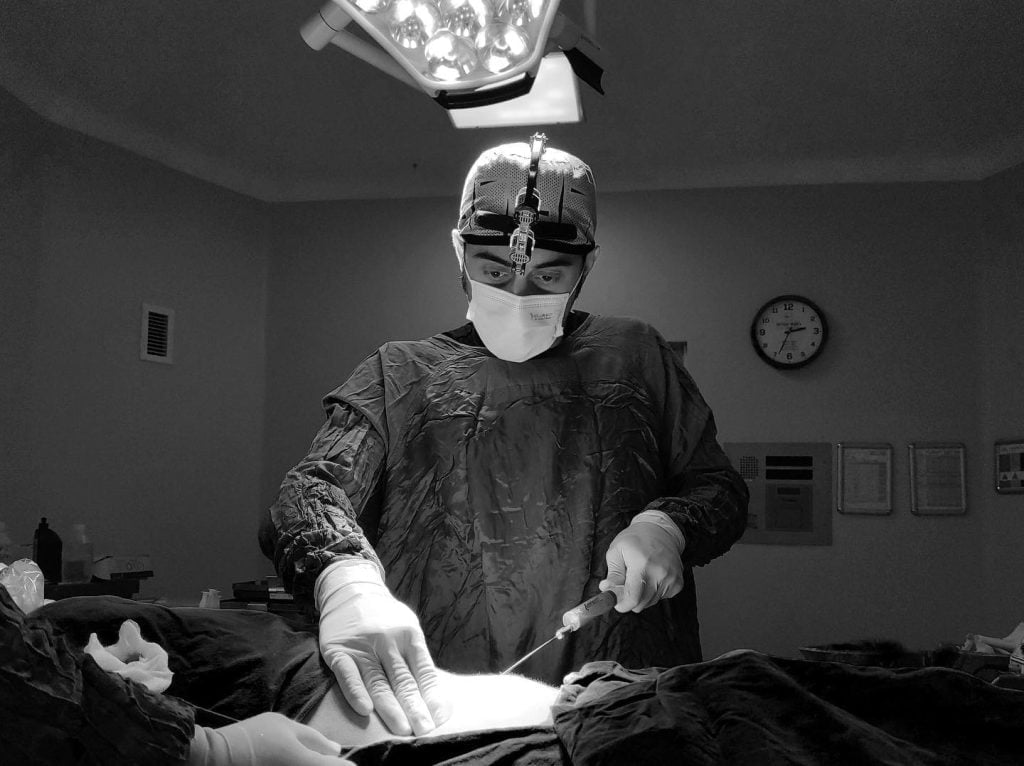Facial Feminization Surgery (FFS) is a transformative procedure that can significantly impact the lives of transgender women and non-binary individuals. However, like any surgical procedure, it comes with its own set of risks and considerations. We sat down with Dr. MFO, a renowned surgeon specializing in FFS, to discuss the potential complications, how to minimize risks, and what patients can do to ensure the best possible outcomes.
Table of Contents
What are the potential risks and complications of facial feminization surgery (FFS)?
Dr. MFO: Every surgical procedure carries inherent risks, and FFS is no exception. Some potential complications include infection, bleeding, scarring, and asymmetry. There can also be issues related to anesthesia, nerve damage leading to numbness or changes in sensation, and dissatisfaction with the aesthetic results. It’s crucial for patients to have a thorough understanding of these risks before undergoing surgery.
Infection, while rare, can occur if proper sterile techniques are not followed or if postoperative care is neglected. Bleeding is another risk, particularly in surgeries involving bone work, such as forehead contouring or jaw reshaping. Scarring is an inevitable part of any surgery, but skilled surgeons can place incisions in less visible areas and provide guidance on scar management to minimize their appearance.
Asymmetry is a concern in any cosmetic procedure. While perfect symmetry is impossible, experienced surgeons strive to achieve a balanced and harmonious look. Nerve damage, though uncommon, can result in temporary or permanent changes in sensation. This is particularly relevant in procedures involving the forehead, nose, and jaw, where nerves are more likely to be affected.
How often do patients experience negative outcomes from FFS?
Dr. MFO: Negative outcomes are relatively rare, especially when the surgery is performed by an experienced and skilled surgeon. However, it’s important to note that no surgery is without risk. Complications can occur, but with proper preoperative planning, surgical technique, and postoperative care, the likelihood of severe negative outcomes can be minimized. Most patients are satisfied with their results and experience significant improvements in their quality of life.
Studies have shown that the majority of FFS patients report high levels of satisfaction with their results. The psychological benefits, including improved self-esteem and reduced gender dysphoria, often outweigh the physical risks. Nonetheless, it’s essential for patients to have realistic expectations and understand that the healing process can be lengthy, with final results sometimes taking up to a year to fully manifest.

What should I consider when choosing a surgeon for FFS to minimize risks?
Dr. MFO: Choosing the right surgeon is one of the most critical decisions you’ll make. Look for a surgeon who is board-certified and has extensive experience specifically in FFS. Review their before-and-after photos, read patient testimonials, and ask about their complication rates. It’s also important to feel comfortable with your surgeon and confident in their ability to understand and achieve your aesthetic goals. Don’t hesitate to seek multiple consultations to find the best fit for you.
In addition to credentials and experience, consider the surgeon’s approach to patient care. A good surgeon will take the time to understand your goals, answer your questions, and provide a comprehensive plan tailored to your needs. They should also offer a clear explanation of the risks and benefits, as well as detailed pre- and postoperative instructions. Building a trusting relationship with your surgeon is key to a successful outcome.
Are there common side effects or issues that arise after FFS?
Dr. MFO: Common side effects after FFS include swelling, bruising, and discomfort, which are typical of any surgical procedure. These usually subside within a few weeks. Some patients may experience temporary numbness or changes in sensation, particularly in areas where nerves have been affected. Scarring is another consideration, but with proper care, scars can become less noticeable over time. It’s essential to follow your surgeon’s postoperative instructions closely to manage these side effects effectively.
Swelling and bruising are most pronounced in the first few days post-surgery and gradually decrease over time. Keeping the head elevated, applying cold compresses, and following a prescribed medication regimen can help manage these symptoms. Numbness is often temporary, but in some cases, it can persist for several months. Patients should be patient and allow their bodies time to heal.
Scarring can be minimized by following your surgeon’s advice on wound care, avoiding sun exposure, and using recommended scar treatments. It’s also important to attend all follow-up appointments so your surgeon can monitor your healing progress and address any concerns promptly.

How can I ensure the best possible results from my FFS procedure?
Dr. MFO: Ensuring the best possible results starts with thorough preparation. Follow all preoperative instructions provided by your surgeon, such as avoiding certain medications and quitting smoking. Postoperatively, adhere to all care guidelines, attend follow-up appointments, and communicate any concerns to your surgeon promptly. Maintaining a healthy lifestyle, including proper nutrition and avoiding stress, can also aid in your recovery and overall satisfaction with the results. Remember, healing is a gradual process, and patience is key.
Preoperative preparation might include stopping certain medications that can increase bleeding risk, such as aspirin or other blood thinners. Smoking cessation is crucial, as smoking can impair healing and increase the risk of complications. Postoperative care involves keeping the surgical sites clean, taking prescribed medications, and avoiding strenuous activities that could disrupt the healing process.
Nutrition plays a vital role in recovery. A balanced diet rich in vitamins and minerals supports the body’s healing processes. Staying hydrated and getting adequate rest are equally important. Emotional support from friends, family, or support groups can also be beneficial during the recovery period.
What are the options for correcting a botched facial feminization surgery?
Dr. MFO: When a patient is unhappy with their initial FFS results, there are several options available. The first step is a thorough consultation to understand the specific concerns and desired outcomes. Depending on the issues, revision surgery can address asymmetry, scarring, or other aesthetic concerns. Techniques may include bone contouring, soft tissue adjustments, or even fat grafting to achieve a more harmonious appearance.
How successful are revisions for unsatisfactory FFS results?
Dr. MFO: The success of revision surgeries largely depends on the nature of the initial issues and the patient’s overall health. Generally, revisions can be highly successful, especially when performed by an experienced surgeon. It’s important to set realistic expectations and understand that while improvements can be significant, perfection is not always achievable. Each case is unique, and a personalized approach is essential.
Can complications from FFS be addressed in subsequent surgeries?
Dr. MFO: Yes, complications from FFS can often be addressed in subsequent surgeries. Common complications such as nerve damage, infection, or unsatisfactory scarring can be managed with appropriate surgical techniques. For instance, nerve damage might require microsurgical repair, while scarring can be minimized with advanced wound care and revision techniques. The key is early intervention and a tailored treatment plan.
What should I do if I’m unhappy with my FFS outcome?
Dr. MFO: If you’re unhappy with your FFS outcome, the first step is to communicate your concerns with your surgeon. Open and honest dialogue is crucial. If you’re not comfortable with your original surgeon, seeking a second opinion from a specialist in FFS revisions can provide new insights and options. Documenting your concerns and desired changes can also help in planning the revision surgery.
Are there specialists who focus on fixing previous FFS surgeries?
Dr. MFO: Absolutely, there are specialists who focus on FFS revisions. These surgeons have extensive experience in addressing the unique challenges of revision surgery. They understand the complexities involved and are skilled in techniques that can correct and enhance previous results. When choosing a specialist, it’s important to review their credentials, experience, and patient testimonials to ensure you’re in capable hands.
Conclusion
Facial Feminization Surgery can be life-changing, offering profound benefits for those seeking to align their physical appearance with their gender identity. By understanding the risks, choosing a qualified surgeon, and following all pre- and postoperative care instructions, patients can maximize their chances of a successful outcome. Dr. MFO’s insights highlight the importance of informed decision-making and careful planning in achieving the best possible results from FFS.

Visit Dr.MFO Instagram profile to see real patient transformations! Get a glimpse of the incredible results achieved through facial feminization surgery and other procedures. The profile showcases before-and-after photos that highlight Dr. MFO’s expertise and artistic vision in creating natural-looking, beautiful outcomes.
Ready to take the next step in your journey? Schedule a free consultation with Dr. MFO today. During the consultation, you can discuss your goals, ask any questions you may have, and learn more about how Dr. MFO can help you achieve your desired look. Don’t hesitate to take advantage of this free opportunity to explore your options and see if Dr. MFO is the right fit for you.









